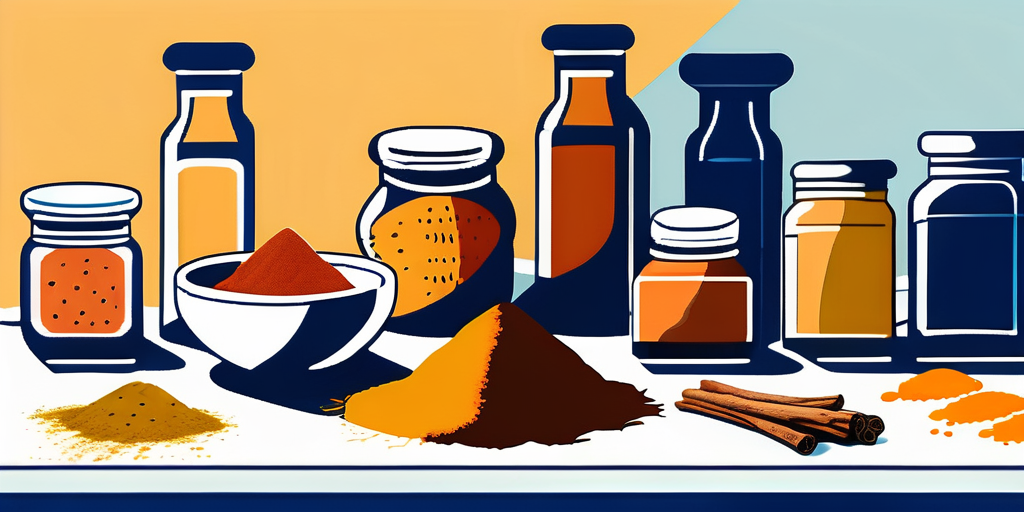Inflammation is a natural response by our body’s immune system to protect against harm and promote healing. However, chronic inflammation can lead to various health issues, including heart disease, diabetes, and obesity. Fortunately, managing inflammation can be done through simple dietary changes. This article will explore five nutritional tips to help reduce inflammation and improve overall health.
Understanding the Connection Between Diet and Inflammation
Before diving into the tips, it’s essential to understand the link between our diet and inflammation. Certain foods can either fuel or fight inflammation in the body. A diet high in processed foods, sugary snacks, and unhealthy fats can trigger inflammation, while a diet rich in fruits, vegetables, and healthy fats can have an anti-inflammatory effect.
Furthermore, chronic inflammation has been linked to various health conditions, including heart disease, diabetes, and even certain types of cancer. By making conscious choices about the foods we consume, we can potentially reduce our risk of developing these inflammatory-related diseases. Incorporating foods with anti-inflammatory properties, such as turmeric, ginger, and fatty fish rich in omega-3 fatty acids, can help combat inflammation and promote overall well-being.
Moreover, studies have shown that maintaining a healthy gut microbiome significantly reduces inflammation in the body. The gut microbiome, which consists of trillions of microorganisms living in our digestive tract, can be influenced by the foods we eat. Consuming a diverse range of fiber-rich foods, fermented foods, and prebiotics can help support a healthy gut microbiome, reducing inflammation and improving immune function.
Tip 1: Incorporate Anti-Inflammatory Foods
To combat inflammation, start by incorporating more anti-inflammatory foods into your diet. These include fruits like berries, oranges, and cherries, packed with antioxidants that help reduce inflammation. Vegetables such as leafy greens, broccoli, and tomatoes are also rich in anti-inflammatory properties.
Add healthy fats like avocados, nuts, and cold-water fish like salmon or sardines to your meals. These foods contain omega-3 fatty acids, which have been shown to reduce inflammation.
Another great way to introduce anti-inflammatory foods into your diet is by incorporating herbs and spices such as turmeric, ginger, and garlic. These ingredients add flavor to your dishes and possess potent anti-inflammatory properties that can help combat inflammation and promote overall health.
Adding Colorful Fruits and Vegetables to Your Plate
Incorporating various colorful fruits and vegetables into your meals adds flavor and provides essential vitamins, minerals, and antioxidants that combat inflammation. Try to include a rainbow of fruits and veggies in your diet to maximize the anti-inflammatory benefits.
When selecting fruits and vegetables, opt for organic produce whenever possible to minimize exposure to pesticides and maximize the nutritional content of your meals. Organic fruits and vegetables are grown without synthetic pesticides and fertilizers, making them a healthier choice for reducing inflammation and supporting overall well-being.
Tip 2: Reduce Sugar and Processed Foods Intake
Sugar and processed foods are notorious for fueling inflammation in the body. Foods high in added sugars, such as sugary drinks, pastries, and desserts, can cause a spike in blood sugar levels, leading to increased inflammation. Processed foods, including processed meats, chips, and fast food, contain unhealthy fats and additives that contribute to inflammation.

Instead, opt for whole foods like fruits, vegetables, lean proteins, and whole grains. These natural, unprocessed options nourish your body and help reduce inflammation.
Additionally, incorporating anti-inflammatory foods such as fatty fish rich in omega-3 fatty acids, turmeric, and leafy greens can further help combat inflammation. Omega-3 fatty acids have been shown to reduce inflammation and may help lower the risk of chronic diseases.
Eliminating Sugary Drinks from Your Diet
Sugary drinks like soda, fruit juices, and energy drinks are loaded with added sugars that can quickly increase inflammation in the body. Replace these sugary beverages with water, herbal teas, or infused water with slices of fruits or herbs for added flavor.
Furthermore, reducing your intake of processed foods can significantly impact your overall health. Processed meats often contain high levels of sodium and preservatives, which can contribute to inflammation and increase the risk of heart disease. Opt for fresh, whole foods whenever possible to give your body essential nutrients and reduce inflammation.
Tip 3: Add Omega-3 Fatty Acids to Your Diet
Omega-3 fatty acids are essential fats that play a vital role in reducing inflammation. They are abundant in fatty fish like salmon, mackerel, and trout. These healthy fats can help lower inflammatory markers in the body.
If you’re not a fan of seafood, you can still get your omega-3s by incorporating plant-based sources like chia seeds, flaxseeds, and walnuts into your diet. These alternatives offer similar anti-inflammatory benefits.
Exploring Plant-Based Sources of Omega-3 Fatty Acids
If you follow a vegetarian or vegan diet, don’t worry! You can still reap the benefits of omega-3 fatty acids by incorporating plant-based sources like flaxseeds, chia seeds, and hemp seeds into your meals. Adding them to smoothies, salads, or oatmeal is an easy and delicious way to increase your omega-3 intake.
Another fantastic plant-based source of omega-3 fatty acids is algae, particularly seaweed. Algae-based supplements are becoming increasingly popular among those looking to boost their intake of these essential fats. Seaweed is not only rich in omega-3s but also provides a variety of vitamins, minerals, and antioxidants, making it a superfood for overall health.
Tip 4: Stay Hydrated
Hydration plays a significant role in inflammation management. Staying hydrated helps flush out toxins from the body and supports proper cellular function. Dehydration can increase inflammation and compromise the body’s ability to heal.

Aim to drink at least eight glasses of water per day. Herbal teas and coconut water are also hydrating options. Limit your intake of sugary beverages, as they can contribute to inflammation, as mentioned earlier.
Incorporating hydrating foods into your diet can contribute to your overall hydration levels. Fruits like watermelon, oranges, and strawberries have high water content and can help keep you hydrated throughout the day. Vegetables such as cucumbers, lettuce, and zucchini are also excellent choices to add to your meals for their hydrating properties.
Hydrating with Herbal Teas
Incorporating herbal teas into your daily routine hydrates your body and provides additional anti-inflammatory and soothing benefits. Opt for herbal teas like green tea, chamomile, or turmeric tea, which have been shown to have anti-inflammatory properties.
Furthermore, adding a slice of fresh lemon or a few sprigs of mint to your herbal tea can enhance the flavor and the hydrating effects. Lemon is a refreshing addition and contains vitamin C, which can help boost your immune system. On the other hand, Mint adds a cooling sensation and can aid digestion, promoting overall well-being.
Tip 5: Use Spices and Herbs with Anti-Inflammatory Properties
Spices and herbs enhance the flavor of dishes and can provide anti-inflammatory benefits. Turmeric, ginger, cinnamon, and garlic are spices and herbs with potent anti-inflammatory properties.

Include or add these ingredients to your smoothies, soups, or dressings. Not only will you elevate the taste of your meals, but you’ll also be incorporating natural inflammation-fighting compounds into your diet.
Moreover, these anti-inflammatory spices and herbs can be traced back to ancient civilizations, which recognized their medicinal properties. Turmeric, for example, has been used in Ayurvedic medicine for centuries due to its powerful anti-inflammatory and antioxidant effects.
When incorporating these spices into your meals, consider the synergistic effects they can have when combined. For instance, turmeric and black pepper together can enhance the absorption of curcumin, the active compound in turmeric, leading to increased anti-inflammatory benefits.
Incorporating Anti-Inflammatory Spices into Your Cooking
Add turmeric, ginger, cinnamon, and garlic to your favorite recipes. These spices add depth and flavor and offer additional health benefits, including reducing inflammation.
Furthermore, exploring different cuisines can introduce you to various anti-inflammatory spices and herbs. For instance, Mediterranean cuisine often incorporates oregano, rosemary, and thyme, all of which have anti-inflammatory properties and contribute unique flavors to dishes.
Frequently Asked Questions About Reducing Inflammation Through Nutrition
Can dietary changes alone reduce inflammation?
Dietary changes can significantly reduce inflammation, but it’s important to remember that overall lifestyle factors, such as exercise and stress management, also contribute to inflammation.
How long does it take to see the effects of an anti-inflammatory diet?
Everyone’s body is unique, so the time it takes to see the effects of an anti-inflammatory diet may vary. However, some individuals may start experiencing positive changes within a few weeks of adopting healthier eating habits.
Can supplements help reduce inflammation?
While certain supplements may have anti-inflammatory benefits, it’s always best to focus on obtaining nutrients from whole foods. Consult with a healthcare professional before adding any supplements to your routine.
Are there any specific foods I should avoid to reduce inflammation?
In general, limiting the consumption of processed foods, sugary snacks, refined carbohydrates, and unhealthy fats is recommended. These foods tend to promote inflammation in the body.
5. Can an anti-inflammatory diet help with weight loss?
An anti-inflammatory diet focused on whole foods can support weight loss efforts. By reducing inflammation, improving insulin sensitivity, and promoting a healthy gut, weight loss may become more manageable and sustainable.
Incorporating these five nutritional tips into your daily routine can help reduce inflammation and improve overall health. Remember, small changes can have a significant impact on your well-being. Start by incorporating anti-inflammatory foods, reducing sugar and processed foods, adding omega-3 fatty acids, staying hydrated, and using spices and herbs with anti-inflammatory properties. Your body will thank you for the nourishment and care it deserves!
What are some examples of anti-inflammatory foods?
Anti-inflammatory foods are rich in antioxidants and phytochemicals, which can help reduce inflammation. Some examples include:
- Leafy green vegetables such as spinach, kale, and Swiss chard
- Fatty fish like salmon, mackerel, and sardines, which are high in omega-3 fatty acids
- Colorful fruits like berries, cherries, and oranges, which are packed with vitamins and antioxidants
- Healthy fats such as avocados, olive oil, and nuts
- Whole grains like quinoa, brown rice, and oats
How can I incorporate more anti-inflammatory foods into my diet?
There are many delicious and creative ways to add anti-inflammatory foods to your meals. Here are a few ideas:
- Toss a handful of berries into your morning oatmeal or yogurt
- Make a colorful salad with leafy greens, cherry tomatoes, and avocado
- Swap out refined grains for whole grains in your favorite recipes
- Try baking or grilling salmon with a squeeze of lemon for a flavorful and nutritious dinner
- Snack on a handful of nuts or seeds for a satisfying and anti-inflammatory treat
By incorporating these additional tips and expanding your knowledge of anti-inflammatory foods, you can further enhance your journey toward reducing inflammation and improving your overall well-being. Remember, nourishing your body with the right foods is a powerful way to support your health and vitality!



